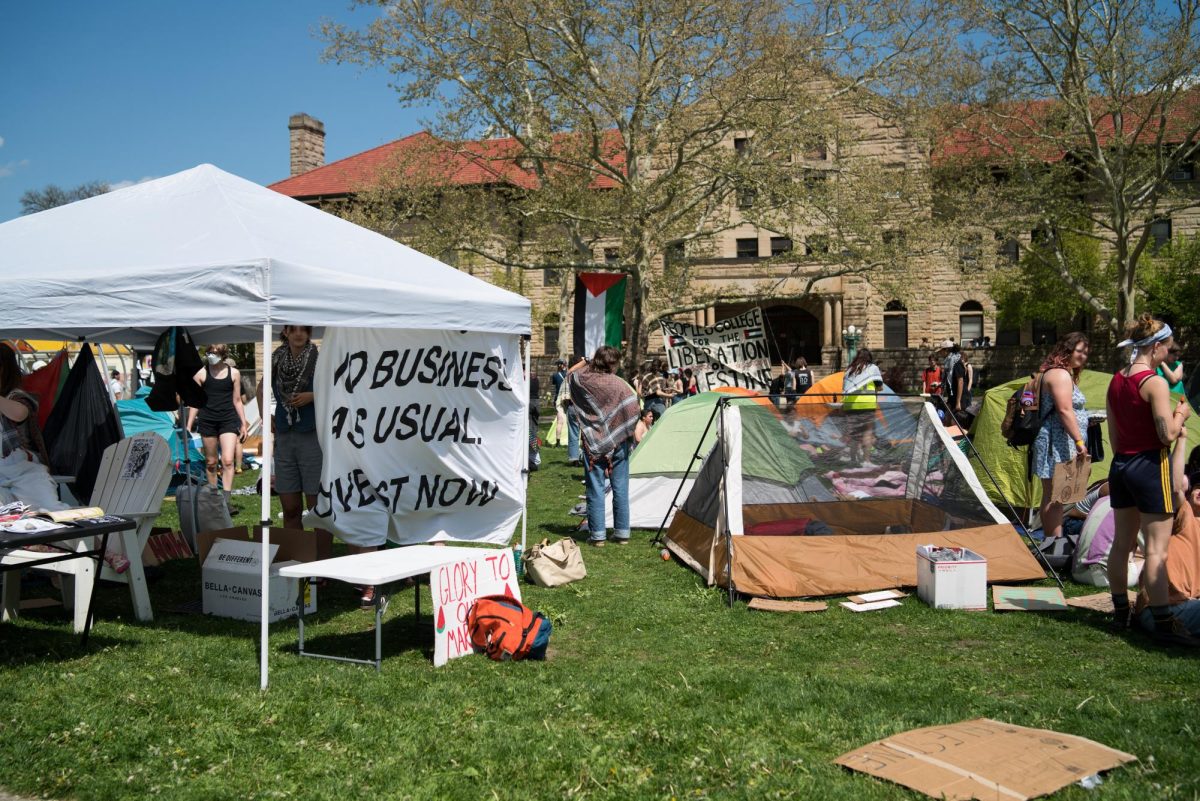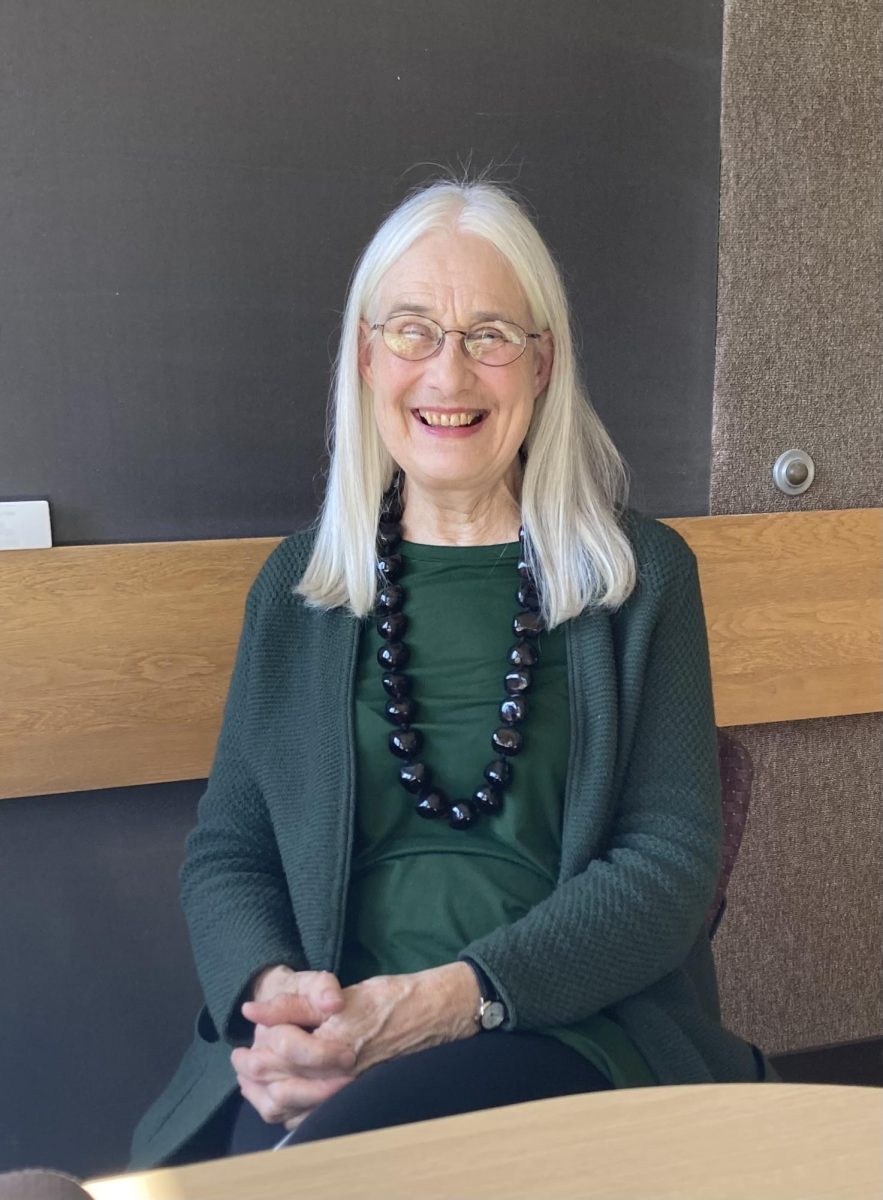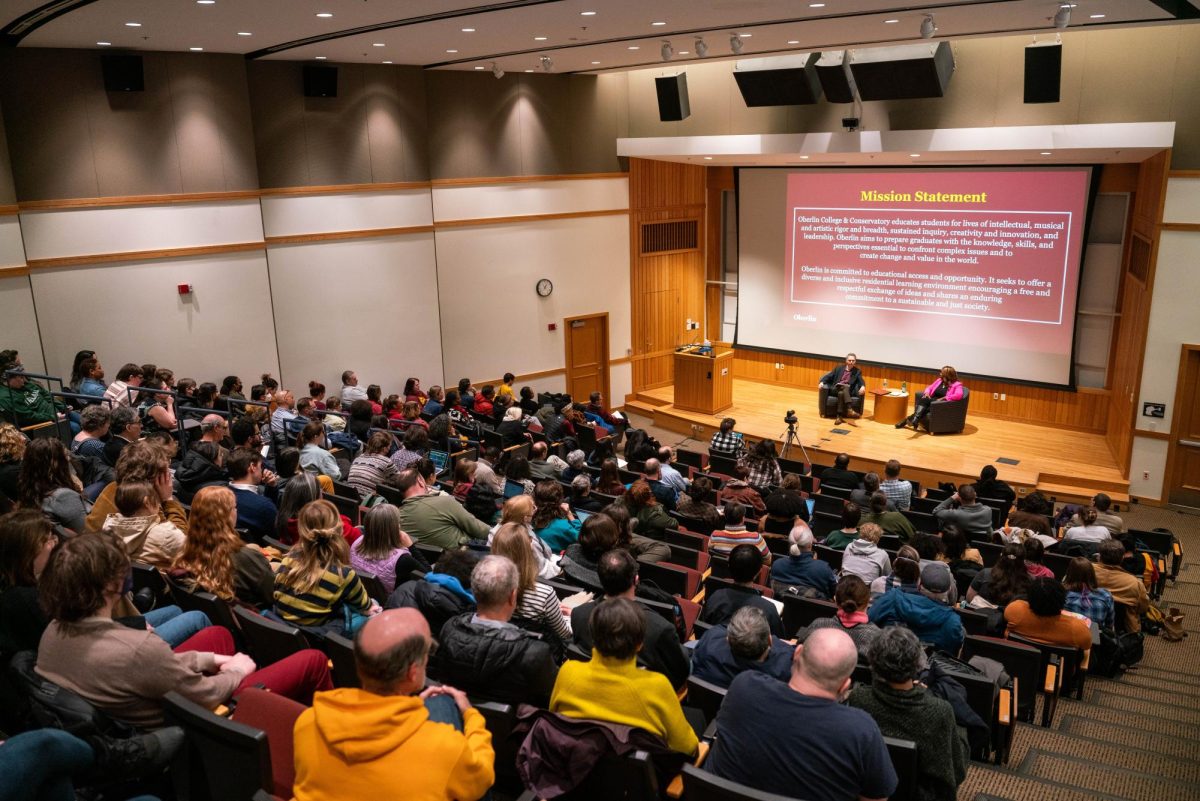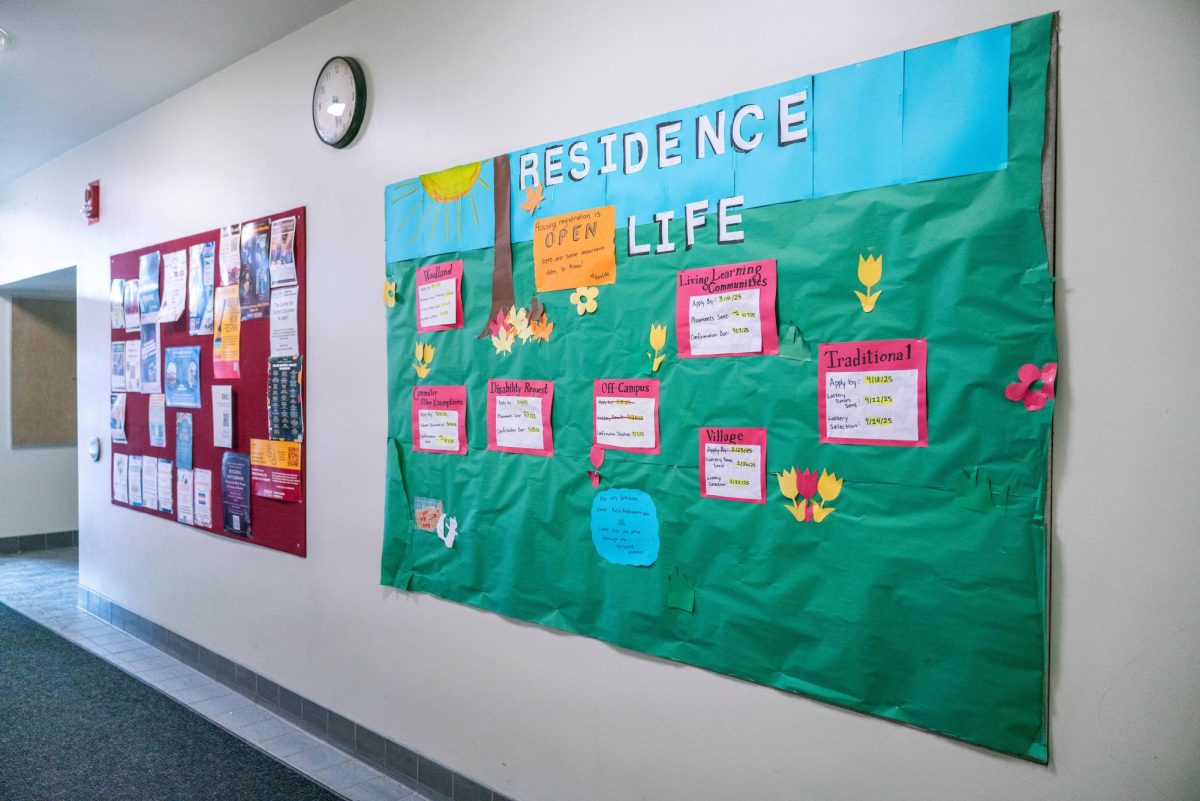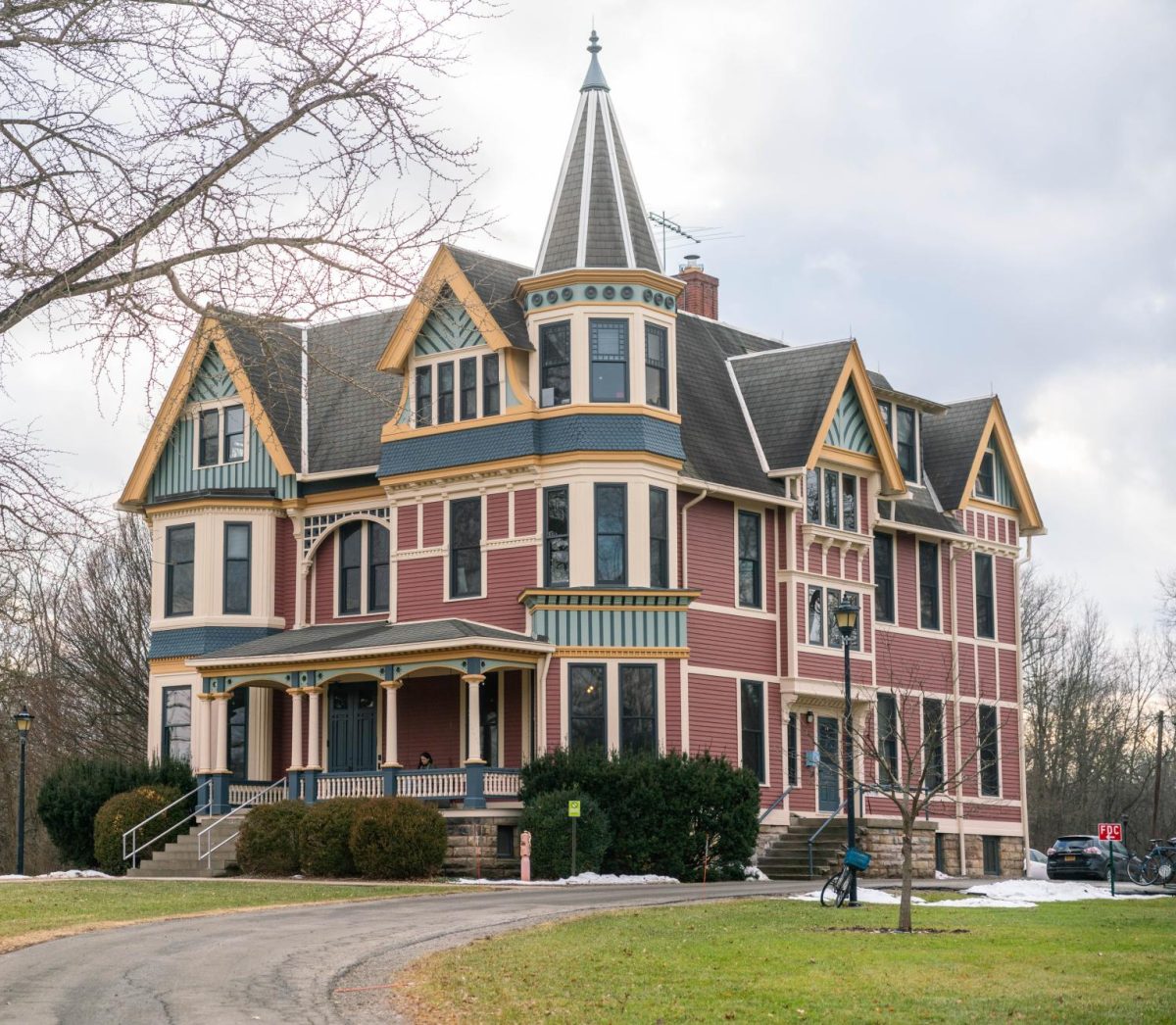On Monday, Oberlin College became the latest in a wave of colleges and universities across the country to set up an encampment in protest of Israel’s war in Gaza, named the People’s College for the Liberation of Palestine. On Tuesday, the organizers announced that they were restructuring the demonstration, removing the tents and transitioning from an encampment into a space for daytime programming focused on education and fundraising. As of Friday, students continue to hold teach-ins, poetry readings, fundraisers for families in Gaza, and other events in Wilder Bowl.
The People’s College was organized by a number of students who call themselves Oberlin Students 4 Palestine. According to the group’s press release, the demonstration is centered around two demands: that the College “recognizes and condemns the ongoing genocide in Palestine,” and that it “commits to divestment from the Israeli Occupation of Palestine, as per the divestment proposal submitted earlier this month.”
College second-year Juwayria Zahurullah, one of the organizers of the event, emphasized that the primary purpose of the People’s College is education, rather than escalation directed toward the administration.
The initial encampment consisted of over 30 tents and about 200 participants, according to a sign posted in the center of the encampment. Many students remained encamped in Wilder Bowl overnight. A central canopied area held snacks, medical and sanitary products, and other supplies. Nearby, a People’s Library offered books and zines about Palestine. Students from Oberlin’s co-ops provided hot meals to those in the encampment.
On Tuesday, Oberlin for Palestine released a statement on Instagram announcing that they were restructuring the demonstration.
“We want to inform that we are restructuring our camp to more effectively serve the Palestinian people and our goals of fundraising and education on the ongoing genocide in Palestine,” the statement read.
The statement commended encampments at other colleges and said that organizers had decided to hold events solely during the day, between the hours of 9 a.m. and 11 p.m.
Tents were removed and replaced with canopies and other coverings for daytime use, as well as two homemade structures, one housing the “People’s Library,” and the other holding a bake sale in support of Palestinian families. Secondhand clothing and artwork are also being sold on a sliding scale in the form of donations. Teach-ins are held throughout the day, and there have been several rallies as well as vigils held daily at 8 p.m. Most events have had about 25 to 50 attendees. Meals continue to be provided.
Zahurullah described the teach-ins as successful in engaging a broader audience.
“In the past, a lot of teach-ins were facilitated by established [Students for a Free Palestine] members who had put a lot of time into them, but now they’re opening up to anybody who wants to do research and start a conversation about any specific topic,” Zahurullah said. “I think that has really encouraged conversation in this community. … People are realizing they have the capability to educate themselves and educate others and use their resources. I think that’s been a very positive reframing to encourage people to take an active role in educating themselves.”
Zahurullah expressed the hope that the students’ presence in Wilder Bowl will lead to conversation with administration.
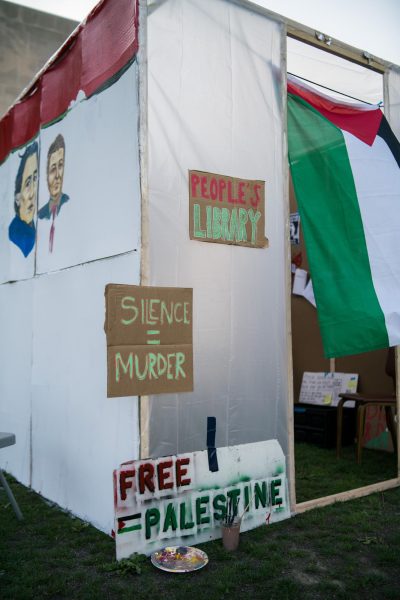
“I hope to have one productive conversation or interaction with admin in which they recognize the merit of what we’re doing and appreciate how we’ve been able to mobilize the student body behind this issue and prove that students do care about Palestine,” Zahurullah said Monday.
She added Thursday that an interaction has not yet occurred.
There has also been no conflict with school administrators or counterprotesters. Campus Safety was present near the People’s College and maintained communication with organizers throughout the week.
Around noon on Tuesday, President Carmen Twillie Ambar released a statement to the College community, acknowledging the protests and their peaceful nature.
“This year we have had several peaceful protests, vigils, and political displays and installations,” Ambar wrote. “As we have engaged in the exercise of free expression, we have not always been perfect in adhering to our community values. But we have not fallen prey to a world where we refuse to listen to each other. We have not devolved into hateful exchanges or violence as a new norm. And we have heretofore avoided what seems to have beset some of our colleagues on other campuses, a harm to the campus community that may be irreparable.”
Media Relations Director Andrea Simakis also made a statement on behalf of the College on Monday.
“Oberlin supports the right of our students to gather and demonstrate peacefully,” Simakis said. “We are in communication with student organizers. Oberlin expects all who participate to conduct themselves in ways that are respectful of others, that do not disrupt the day-to-day activities of the school, and that uphold our shared values: respect for each other and our community.”
A number of “community guidelines” were established by organizers, posted near the center of the “People’s College,” and shared through trainings on the first day. The guidelines instructed demonstrators to remain peaceful and not engage with counter-protestors in order to avoid escalation.
At many other colleges and universities, protests have been met with pushback from school administrations, and arrests nationwide have surpassed 2,000. At nearby Case Western Reserve University, a Monday encampment resulted in removal by campus police, who detained about 20 demonstrators.
One of the goals of the People’s College is showing support for the divestment proposal that students recently submitted to the Board of Trustees.
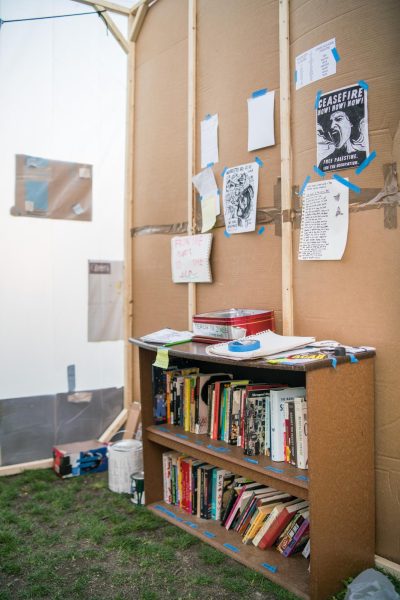
“[People’s College for the Liberation of Palestine’s] goal is advancing goals of education and fundraising among the student body and acknowledging our positionality [as] students in an institution that is funding the Israeli occupation, and the fact that this is the financial institution that we hold the most stake in,” College third-year Olivia Wohlgemuth, an organizer in the People’s College and one of the students who helped draft the proposal, said. “So I think that, by nature, divestment is inextricable with the other work we’re doing around Palestinian liberation.”
Wohlgemuth said that the writers of the proposal had received confirmation from the administration that the proposal was submitted in time for the executive committee to review it at their meeting in June. The executive committee will then decide whether or not to bring the proposal before the Board of Trustees for a vote. Wohlgemuth said that she had high hopes that the executive committee would agree to bring the proposal to a vote given conversations the group had had with members of the committee.
College fourth-year Jonas Nelson, another student involved with the creation of the divestment proposal, said that the group decided to include a broad list of companies given that Oberlin cannot legally disclose which companies its endowment is invested in.
“We kind of decided to go broad rather than specific and … give the board the power to determine which [companies to divest from] because the lack of transparency made it difficult to make a very concise and focused list that might be easier to kind of reject based off of the lack of financial involvement,” Nelson said.
According to Nelson, the proposal includes a list of over 130 companies. Wohlgemuth and Nelson said that the proposal calls for divestment from companies that directly fund attacks classified as genocide by the International Court of Justice, the U.S. Federal Court, or UN experts and legal scholars; companies that provide military equipment to Israel; companies that operate within illegal Israeli settlements; companies that participate in the construction of the border wall between Israel and Palestine; and companies that aid the maintenance and expansion of Israeli settlements in Gaza, the West Bank, and East Jerusalem.
Zahurullah said that the programming on Wilder Bowl may continue until the end of the semester.


